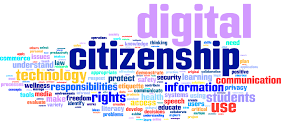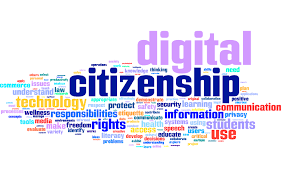Digital Citizenship

9th September 2022
Being Safe and Responsible Online, by Mr. Took
Our online life is a big part of our real world. We encourage our students to be responsible citizens. So what is Digital Citizenship? Digital citizenship is a way of thinking, being and acting when online;
- Thinking Critically
- Being Safe
- Acting Responsible

How do we prepare learners for success in a connected world? These are some of the issues we need to address in order to become a good digital citizen and be safe and responsible when online.
- Media Balance & Well-Being: How much time do you spend offline, reading a book, playing sports outside, talking to family in person, versus time spent online for work, socialising or entertainment.
- Privacy & Security: Consider how much of your personal information you give out when you are online. Your name, email, location data, browsing habits and interest, and the images of yourself, friends and family you upload.
- Digital Footprint & Identity: Sometimes the biggest danger you can face online is YOU, yourself. What you do and say online matters now and in the future. Irresponsible behaviour can lead to serious self harm. People have ruined their lives and careers by what they have said online
- Relationships & Communication: When communicating online we do not always read body-language and non-verbal cues as well as we should. We lose our inhibitions and become emboldened to talk to complete strangers as if they were close friends.
- Cyberbullying & Hate Speech: Digital technology has made bullying worse. Bullies can hide behind a shield of anonymity, attacks become viral, and for the victim there appears to be no escape. We are often faced with the illusion of choice when on social media but harmful and hateful content is often pushed onto people, especially young people.
- News & Media Literacy: Nowadays anyone and everyone can become a “Citizen.Journalist”. Critical thinking is important. We must question the information we are given and discern fact from opinion.








